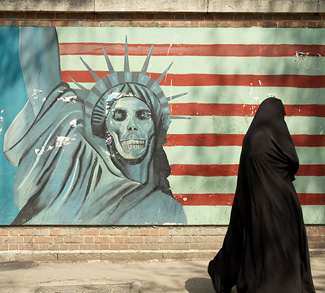Summary
The Western Balkans have a long history as a crossroad and a battleground between different empires and civilizations. Along with the area’s mountainous terrain, this has had a deep influence on the culture of its inhabitants, who developed distinct and often competing identities based upon linguistic and religious criteria: Catholic Croats, Orthodox Serbs, Muslim Bosnians and Albanians, as well as others. Today, Serbia is a pivotal state in a region that continues to be fragmented and subject to the geopolitical ambitions of outside powers. Among these, Turkey is engaged in an effort to renew its influence in the region, and the long-term effects could be destabilizing. But it is not the only outside power with plans for the region; and today as in the past, events in this geopolitical flashpoint can unleash serious consequences.
Background
The history of the Western Balkans is long and complex. Inhabited since the antiquity, the region was once part of the Roman Empire. After its demise, the area was contested between the Byzantines, Bulgarians, and local potentates. The most important of these were the various Serbian states that existed through the centuries. The first emerged in the 7th century in the form of a Principality that lasted until 971. After a century of renewed Byzantine rule, it reemerged as the Grand Principality of Serbia in 1091, which became a Kingdom in 1217 and then a self-proclaimed Empire in 1346. However, it was a short-lived entity, as it broke down in 1371 due to internal turmoil and most importantly to the growing military threat of the Ottomans. The last medieval Serbian state ultimately fell in 1389 in the aftermath of the defeat against the Turkish armies at the first Battle of Kosovo, which later turned into a founding event in the national identity of the Serbs. As far as the Ottomans are concerned, thanks to a series of successful campaigns they expanded their rule over the whole region. Later, as the power of the Sublime Porte (the seat of Ottoman governance) declined, the northern parts of the Western Balkans became part of the Austrian Empire, and Russia also gradually increased its influence in the region. In the second half of the 19th century, national states emerged in the area. Serbia, which was recognized as an independent country in 1878, soon showed a willingness to unite all of the region. In fact, after the Balkan Wars and WWI, it became the main regional power in the form of the Kingdom of Yugoslavia, which continued its existence as a communist state after WWII. Yugoslavia ultimately collapsed during the wars of the 1990s, leading to a progressive fragmentation of the Western Balkans into the various states existing today.
History illustrate hows the region has always been marked by foreign meddling, with external powers supporting the independence or the hegemonic ambitions of local states to pursue their own geopolitical interests. This situation continues today, with various outside players involved: the EU, Russia, Turkey, China, and even Japan. In this context, Serbia holds a particular relevance. Apart from being the main power in the area considering a combination of economic, demographic, and military factors, it also benefits from its central position: it shares borders with all the main states in the region, and its northern part opens on the Pannonian Plain that gives access to Central Europe and ultimately to Germany. This is why Serbia is the epicenter of this struggle for influence in the Western Balkans.




